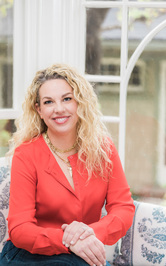
“I love the analogy used in the book The Whole-Brain Child by Daniel Siegel and Tina Payne Bryson—when a child is upset, he “flips his lid.” This means that the upstairs part of the brain—the cerebral cortex, the part of the brain that makes rational decisions and allows for self-control—is not available to the child. Therefore, all the reasoning in the world or explanations will fall on deaf ears. We need to first help them close the lid by giving them support to calm down. We can offer them a cuddle; we don’t assume that they want one. Some children like to be cuddled to help them calm down. Some children will push us away. If they push us away, we make sure they are safe and we can offer them a cuddle when they are calm. We are saying it’s okay for them to melt down. Rather than trying to get the tantrum to stop as soon as possible, allow them to express all their feelings safely until they are calm, and show that we are there to help if they need us. And, once they are calm, we can help them make amends if needed.”
―
Simone Davies,
The Montessori Toddler: A Parent's Guide to Raising a Curious and Responsible Human Being
“Memory is all about associations. Past experiences strongly influence what we see or feel.Memories shape our current perceptions by causing us to anticipate what will happen next. Our past absolutely shapes our present and future. And it does so via associations within the brain.” ― Daniel J. Siegel & Tina Payne Bryson
“Take a values inventory. The psychotherapist Tina Payne Bryson offered this reflection to see if your values and your actions align: (1) look at how you spend your money when it comes to your kids; (2) look at your child’s calendar; (3) pay attention to what you ask your kids about; and (4) notice what you argue with your kids about. Many parents think they’re not overemphasizing achievement, but when they look at these four things, they see how their behavior is telling their kids a different story of what they value most.” ― Jennifer Breheny Wallace, Never Enough: When Achievement Culture Becomes Toxic-and What We Can Do About It
“Memory is all about associations. Past experiences strongly influence what we see or feel.Memories shape our current perceptions by causing us to anticipate what will happen next. Our past absolutely shapes our present and future. And it does so via associations within the brain.” ― Daniel J. Siegel & Tina Payne Bryson
“Take a values inventory. The psychotherapist Tina Payne Bryson offered this reflection to see if your values and your actions align: (1) look at how you spend your money when it comes to your kids; (2) look at your child’s calendar; (3) pay attention to what you ask your kids about; and (4) notice what you argue with your kids about. Many parents think they’re not overemphasizing achievement, but when they look at these four things, they see how their behavior is telling their kids a different story of what they value most.” ― Jennifer Breheny Wallace, Never Enough: When Achievement Culture Becomes Toxic-and What We Can Do About It
Read More! Learn More!
